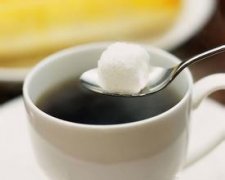Coffee is good for our health. Coffee energizes us.

Coffee energizes us.
The content of caffeine does not come from the taste, but is closely related to its brewing method. Recent studies have shown that coffee contains a large number of antioxidants, pain-relieving compounds and antibacterial compounds. Of course, that doesn't mean you can drink as much as you want-it's the opposite. However, it is necessary to understand the benefits of having a cup of coffee every morning.
Concentrate
Coffee can make you think better. Caffeine, often described as the world's most widely used mood mediator, produces the opposite effect of adenosine as a sedative. Studies have shown that coffee can make you more focused, especially when you are doing boring work. "when you don't get enough sleep, caffeine can improve the performance of a range of cognitive tests, such as mobility, memory, learning and attention," said Dr. Harris Lieberman, chief caffeine researcher at the United States Army. Coffee can also improve your mood and make you feel more energetic. "
Reduce the feeling of sleepiness
French researchers recently conducted a test in which volunteers were organized to test drugs during an eastward flight across the Atlantic. Volunteers who took caffeine felt much less sleepy than those who took N-acetyl-5-methoxysolan (or placebo). The researchers suggest that drinking a cup of coffee every two to three hours from breakfast to four to six hours before going to bed can reduce drowsiness and make people more alert.
Enhance the athletic ability
A new study shows that caffeine can reduce the pain caused by muscle exercises, so that you can increase the intensity and time of exercise. To achieve the best pain relief, you only need to drink 450 grams of coffee before exercise. A small amount will also play a role, but be careful not to drink too much.
Strong teeth
Drinking coffee can reduce the number of times you go to the dentist. Recently, researchers in Italy have found that the antibacterial ingredients in coffee can slow the growth of Streptococcus, which is responsible for tooth decay. The compounds in coffee can also reduce the chances of bacteria sticking to the surface of teeth. Studies have shown that drinking coffee can reduce the formation of dental cavities.
Removal of stones
It's no secret that coffee can make your bladder healthier. The Nursing Health Association claims that coffee can also reduce the risk of kidney stones. In general, the more coffee women drink, the lower the risk of kidney stones. Caffeine can reduce the risk of kidney stones. Decaf has a similar effect.
Stay away from Parkinson's
New research shows that drinking just one cup of coffee a day can reduce the risk of Parkinson's, a brain disease that causes tremors. Women with 1ax 50 are at risk of suffering from the disease. Alberto Ascherio, MD, associate professor of nutrition and epidemiology at Harvard University, said: "caffeine protects brain cells from Parkinson's disease."
Stay away from diabetes
A recent survey found that women who drink three cups of coffee a day can reduce their risk of developing type 2 diabetes by 20 to 30 points. Experts believe that antioxidants in coffee are the key. Dr. Frank Hu, Associate Professor of Nutrition and Epidemiology at Harvard University, pointed out that coffee can help promote the transfer of insulin to tissues. Insulin resistance-the main cause of diabetes-coffee can reduce the likelihood of it.
Cancer prevention
Japanese researchers point out that people who drink coffee every day for ten years are 50% less likely to develop liver cancer than those who never drink coffee. And the more you drink, the lower the risk of liver cancer. Researchers have yet to figure out whether caffeine is at work.
Laurie Tarkan is a contributor to the New York Times. She likes espresso with milk.
Important Notice :
前街咖啡 FrontStreet Coffee has moved to new addredd:
FrontStreet Coffee Address: 315,Donghua East Road,GuangZhou
Tel:020 38364473
- Prev

Fresh green coffee beans and roasted coffee beans in vitro and in vivo
Main contents: the anti-hydroxyl radical effects of water-soluble components in fresh green coffee beans and roasted coffee beans of Arabica beans and Roberts beans were determined by deoxyribonucleic acid chemical analysis in vitro and biological cell system (IMR32 cells) in vivo. All the tested coffee solutions have obvious anti-free radical effect. In the process of deoxyribose analysis in vitro, all tested
- Next

Relationship between coffee drinking and liver cirrhosis and mortality
Main content: objective: the objective of the study was to evaluate the relationship between coffee consumption and mortality in patients with liver cirrhosis. Methods: a follow-up survey of 51306 cardiovascular diseases from 1977 to 1983 was introduced. During this 17-year period, the total number of deaths from all factors was 4207. 53% of people are mentioned in the death certificate with the diagnosis of liver cirrhosis; these people
Related
- Beginners will see the "Coffee pull flower" guide!
- What is the difference between ice blog purified milk and ordinary milk coffee?
- Why is the Philippines the largest producer of crops in Liberia?
- For coffee extraction, should the fine powder be retained?
- How does extracted espresso fill pressed powder? How much strength does it take to press the powder?
- How to make jasmine cold extract coffee? Is the jasmine + latte good?
- Will this little toy really make the coffee taste better? How does Lily Drip affect coffee extraction?
- Will the action of slapping the filter cup also affect coffee extraction?
- What's the difference between powder-to-water ratio and powder-to-liquid ratio?
- What is the Ethiopian local species? What does it have to do with Heirloom native species?

